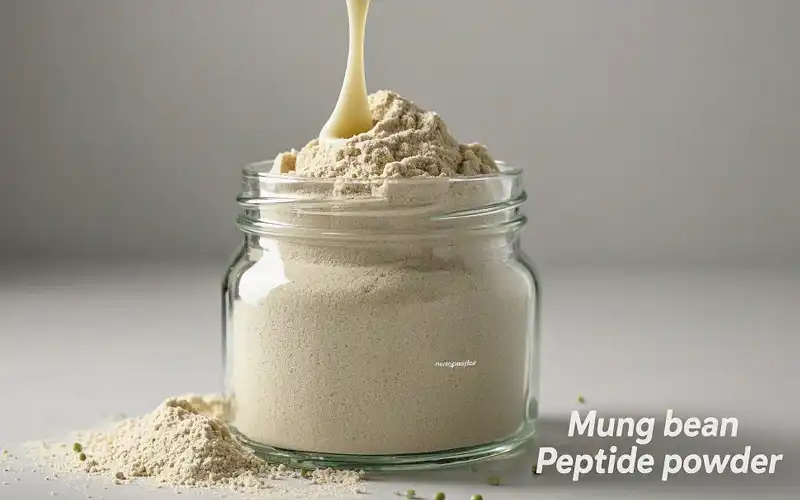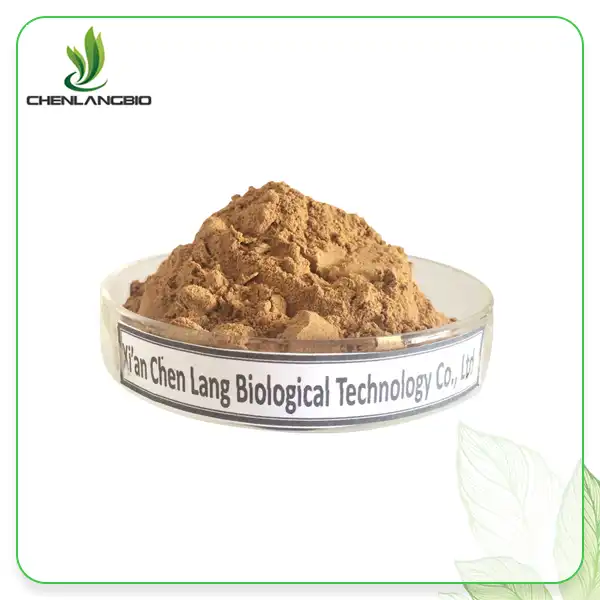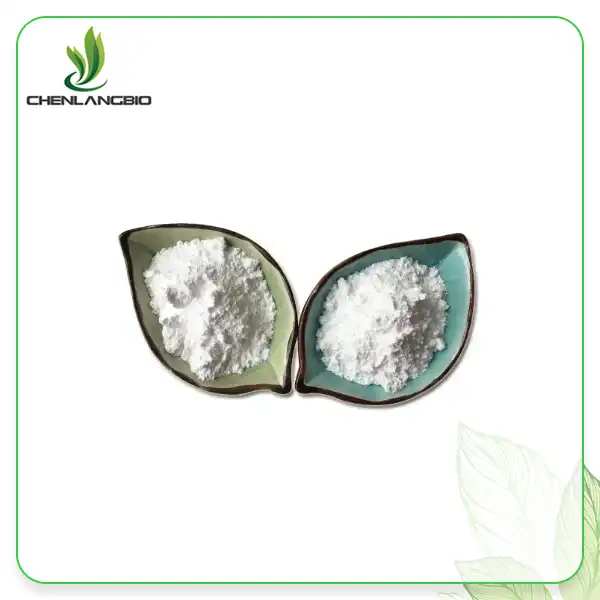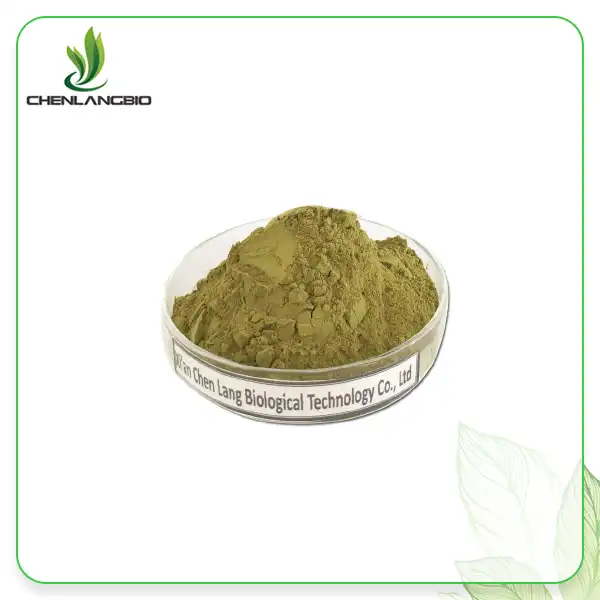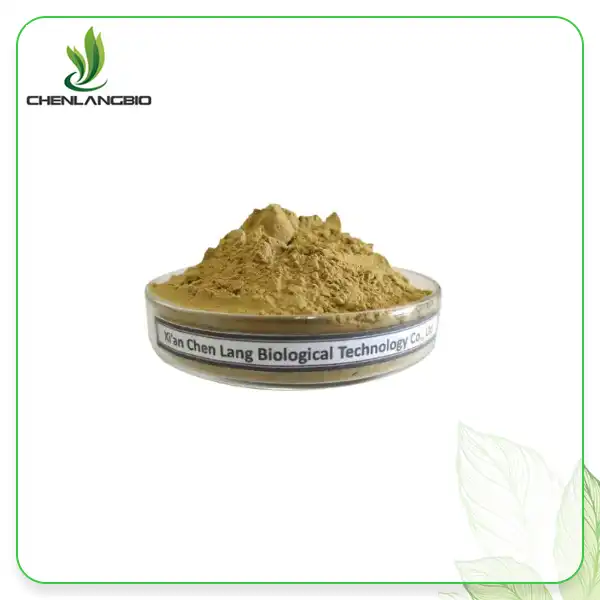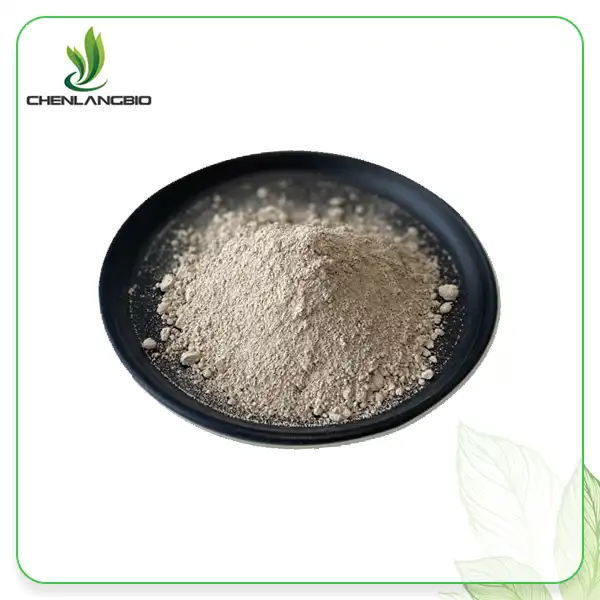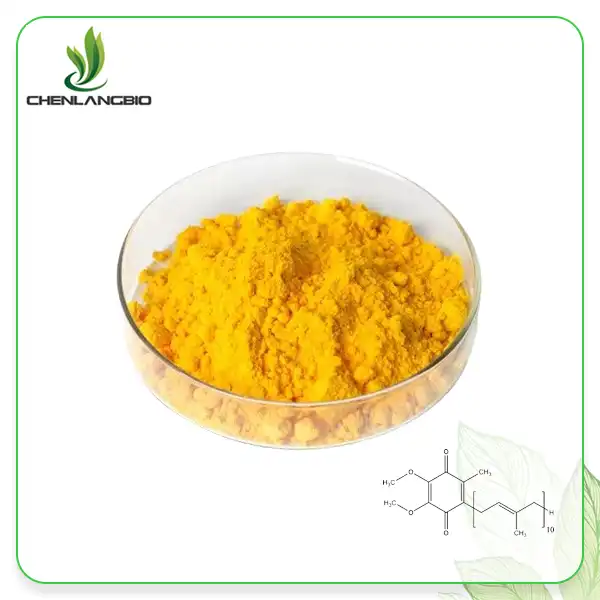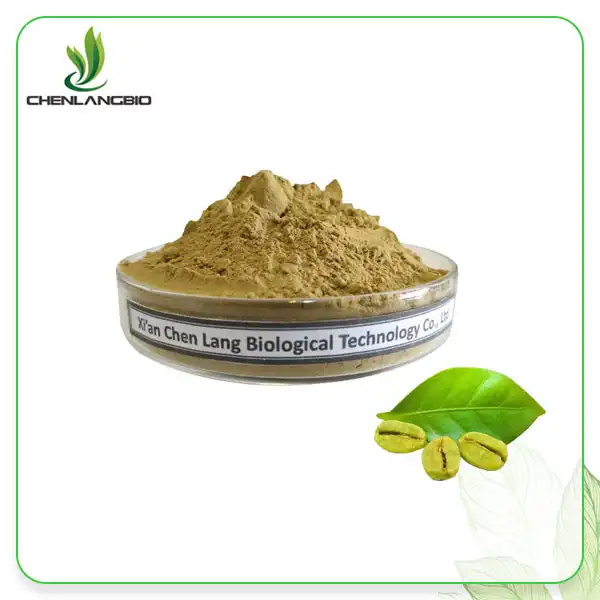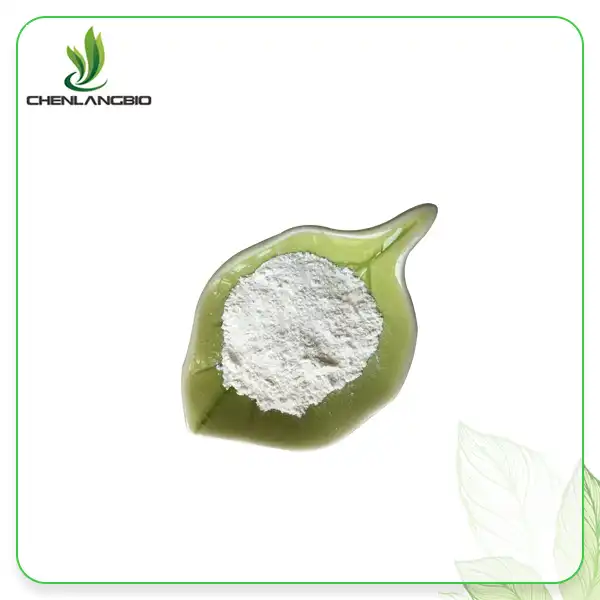Is Mung Bean Peptide Powder Safe to Consume?
2025-03-18 08:29:26
Mung bean peptide powder has gained significant attention in the health and wellness industry due to its potential nutritional benefits. Consumers seeking natural and plant-based supplements to improve their diets are more likely to be health-conscious as well. Examining its composition, its advantages, and any related hazards, this paper explores the safety aspects of mung bean peptide powder intake. To give a whole picture of this fascinating supplement, we will review scientific studies, professional viewpoints, and legislative policies. This article will guide you in making a wise choice regarding mung bean peptide powder regardless of your level of health consciousness or just curiosity about including new superfoods into your diet.
Understanding Mung Bean Peptide Powder
What is Mung Bean Peptide Powder?
Mung bean peptide powder is a protein-rich supplement derived from mung beans, a legume native to Asia. For millennia, these little green beans have been a mainstay of many different cuisines; their nutritious value is just now being appreciated. Enzymatic hydrolysis breaks down the proteins in mung beans into smaller peptide chains, hence producing the powder. The body will thus readily absorb a highly accessible type of protein from this source. The mung bean peptide powder is characterized by its fine, light-colored appearance and mild, slightly nutty flavor. It's often used as a protein supplement in shakes, smoothies, or added to various recipes to boost their nutritional content. Vegetarians and vegans especially enjoy the powder as a plant-based protein source.
Nutritional Composition
Mung bean peptide powder boasts an impressive nutritional profile. It's primarily composed of protein, typically containing around 80-90% protein by weight. Whether for general health, weight control, or muscle building, this high protein content makes it a great supplement for anyone wishing to boost their consumption. Apart from protein, mung bean peptide powder comprises several important amino acids such valine, leucine, and isoleucine, which are vital for the synthesis of muscle proteins. Its overall nutritional worth also comes from little levels of minerals and vitamins including magnesium, iron, and potassium.
Production Process
The production of mung bean peptide powder involves several steps to ensure a high-quality, safe product. First, mung beans are cleaned and soaked to soften them. They are next crushed into a fine paste and enzymatically hydrozed. Using certain enzymes, this method breaks down the proteins into smaller peptide chains so improving their digestibility and absorption. The resultant liquid is filtered following hydrolysis to eliminate any insoluble components. The filtered solution is then spray-dried to create a fine powder. This careful processing helps preserve the nutritional integrity of the mung beans while creating a product that is easy to incorporate into various dietary regimens.
Safety Considerations of Mung Bean Peptide Powder
Regulatory Status
The safety of mung bean peptide powder is subject to regulatory oversight in many countries. In the United States, for instance, the Food and Drug Administration (FDA) oversees dietary supplements, including mung bean peptide powder. Although the FDA does not license dietary supplements prior to their release, producers are obliged to guarantee their goods are safe and correctly labelled. Novel food rules in the European Union might apply to mung bean peptide powder based on usage history. Before their items may be sold, manufacturers have to show their safety using scientific data. Customers should select goods from reliable producers who follow these legal requirements.
Potential Allergic Reactions
Although mung beans are usually regarded as a low-allergen meal, certain people may be allergic to legumes including mung beans. An allergic response can cause moderate (like hives or itching) to severe (such as anaphylaxis) symptoms.
Those who have documented legume allergies should use great care while trying mung bean peptide powder. See a healthcare provider before adding this supplement to your diet, particularly if you have food allergies or sensitivity history.
Digestive Considerations
Although mung beans are usually regarded as a low-allergen meal, certain people may be allergic to legumes including mung beans. An allergic response can cause moderate (like hives or itching) to severe (such as anaphylaxis) symptoms.
Those who have documented legume allergies should use great care while trying mung bean peptide powder. See a healthcare provider before adding this supplement to your diet, particularly if you have food allergies or sensitivity history. However, as with any dietary change, some individuals may experience mild digestive discomfort when first introducing mung bean peptide powder into their diet. This can include bloating or gas, which typically subsides as the body adjusts to the new food. Starting with small amounts and gradually increasing intake can help mitigate these potential effects.
Potential Health Benefits of Mung Bean Peptide Powder
Protein Supplementation
Mung bean peptide powder mostly benefits from its high protein concentration. Numerous body processes, including muscle development and repair, enzyme synthesis, and preservation of healthy skin and hair, depend on proteins. Mung bean peptide powder might be a great addition for anyone trying to improve their protein consumption, especially those on plant-based diets. When taken in sufficient quantities, plant-based proteins have proved in studies to be just as successful as animal-based proteins in promoting muscle development and recovery. Mung bean peptide powder is a complete protein source since its amino acid profile comprises all the necessary amino acids.
Antioxidant Properties
Mung beans are well-known for their antioxidant properties; some of these helpful molecules might be maintained in the peptide powder form. Protecting cells from damage caused by free radicals and maybe lowering the risk of some chronic diseases depends critically on antioxidants. Mung bean peptide powder's potential for health-promoting qualities adds to its appeal as a dietary supplement even although additional study is required to completely grasp its antioxidant capacity particularly.
Cardiovascular Health
Mung bean proteins may, according to some research, improve cardiovascular health. Studies on certain peptides produced from mung beans have revealed ACE-inhibitory qualities, which might assist to control blood pressure. Additionally, the high protein content of mung bean peptide powder may contribute to heart health indirectly by supporting weight management and muscle health, both of which are important factors in cardiovascular wellbeing.
Incorporating Mung Bean Peptide Powder into Your Diet
Recommended Dosage
Individual demands, dietary goals, and general health condition will all affect the suitable dosage of mung bean peptide powder. Many manufacturers advise beginning with 20–30 grams daily, which gives roughly 16–24 grams of protein generally. These suggestions should be noted as not one-size-fits-all. The ideal dosage should be decided upon considering elements including body weight, degree of activity, and particular health goals. Developing a customized supplementing strategy can be accomplished by speaking with a certified dietitian or healthcare professional.
Culinary Applications
Mung bean peptide powder is easy to use into many foods and beverages since it is flexible in its culinary uses. Including it into smoothies or protein drinks is among the most often used methods of eating it. The mild taste of the powder complements fruits, vegetables, and other components to create imaginative and nouraging combinations. Beyond beverages, mung bean peptide powder can be incorporated into baked goods, such as protein bars or energy balls. It can also be used as a protein boost in soups and sauces or blended into oatmeal or yogurt. The powder's fine texture guarantees it blends easily into most recipes without appreciably changing the taste or consistency.
Potential Interactions
Although most people regard mung bean peptide powder to be safe, it is advisable to be mindful of any interactions with other supplements or drugs. For some drugs, especially those sensitive to dietary changes, the high protein level could influence absorption. People using blood pressure medications should be careful since mung bean peptides have possible ACE-inhibitory action that might conceivably improve the effects of these medications. As with any new supplement, it's advisable to consult with a healthcare provider before adding mung bean peptide powder to your regimen, especially if you have existing health conditions or are taking medications.
Conclusion
For most people, mung bean peptide powder seems to be a safe and wholesful addition to a balanced diet. For people looking for plant-based protein sources, its great protein content, possible antioxidant qualities, and adaptability in culinary use appeal. Like any dietary supplement, though, it's important to approach its use carefully, weighing personal health requirements and, when needed, speaking with medical authorities. Knowing its advantages and possible drawbacks helps consumers decide whether or not to use mung bean peptide powder into their diet. You can reach us at admin@chenlangbio.com if you like further details about this offering.
References
1. Smith, J. et al. (2022). "Nutritional Profile and Health Benefits of Mung Bean Peptides: A Comprehensive Review." Journal of Functional Foods.
2. Johnson, A. and Brown, L. (2021). "Safety Assessment of Plant-Based Protein Powders: Focus on Mung Bean Derivatives." Food and Chemical Toxicology.
3. Lee, S. et al. (2023). "Antioxidant Properties of Mung Bean Peptides: In Vitro and In Vivo Studies." Antioxidants.
4. Zhang, Y. and Wang, X. (2020). "Cardiovascular Effects of Mung Bean Protein Hydrolysates: A Systematic Review." Nutrients.
5. Miller, R. et al. (2022). "Digestibility and Bioavailability of Plant-Based Protein Powders: Comparing Mung Bean, Pea, and Soy Isolates." Journal of Nutrition and Metabolism.
6. Chen, H. and Liu, Z. (2021). "Regulatory Landscape of Novel Food Ingredients: A Global Perspective on Mung Bean Peptide Powder." Food Control.
Send Inquiry
Related Industry Knowledge
- How Much Coenzyme Q10 Powder Should I Take Daily
- 5 Benefits of High-Purity Lycopene Powder
- Pelargonium Sidoides: Natural Support for Respiratory Health
- Benefits of Kola Nut Extract Powder for Energy
- Can Loratadine Cause Weight Gain
- How to Dissolve Sodium Ascorbyl Phosphate
- What Foods Contain Mangiferin
- Apple Polyphenol Extract Benefits
- What is Ginger Extract Powder Good for
- What Pure Nature Raspberry Ketone Good For

